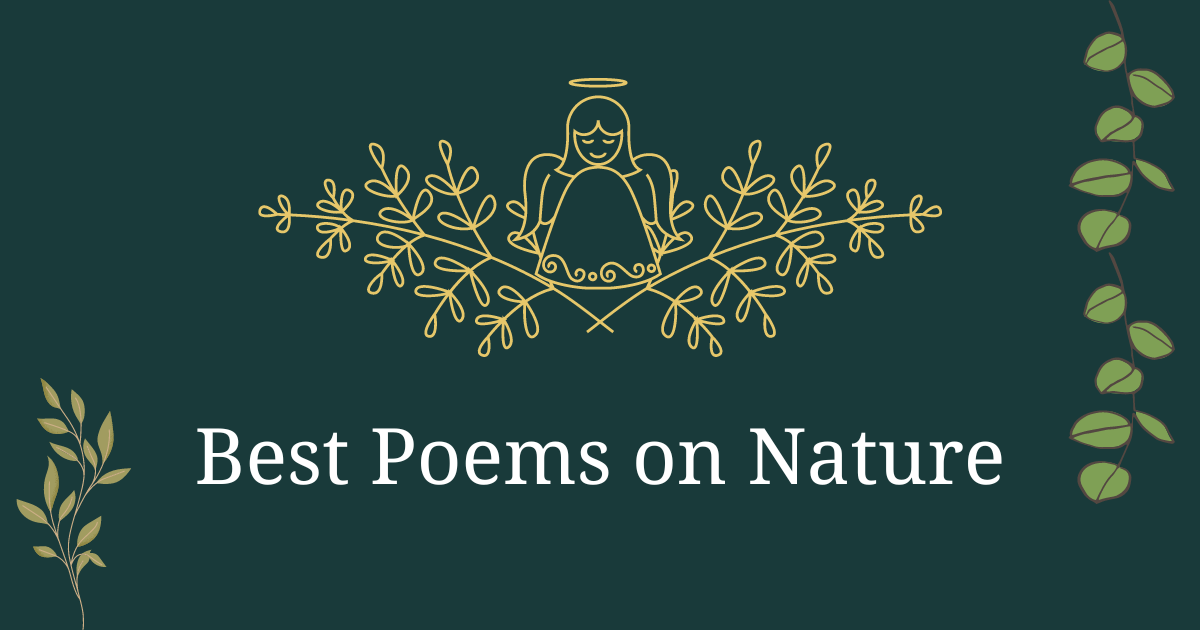Nature is the beauty that provides us with everything. Poetry is an art that beautifully explains nature. Poem on nature is blissful and gives relief to the heart too. We will read the ten most popular English nature poems in this blog. These poems will give you an idea of how beautiful our surroundings are when we observe them. Children should read these nature poems, and they will feel a sense of joy and love for nature. There is a special section for kids to learn, “How to write a Poem on Nature.” The tips and guidelines will help beginners to write their first nature poem expressing love.
Short Poems on Nature
Fog
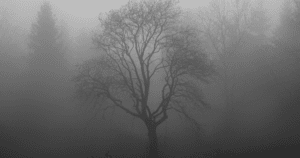
The fog comes on little cat feet.
It sits looking
over harbor and city
on silent haunches
and then moves on.
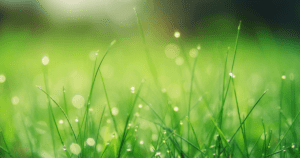
Dewdrops
Watch the dewdrops in the morning,
Shake their little diamond heads,
Sparkling, flashing, ever moving,
From their silent little beds.
See the grass! Each blade is brightened,
Roots are strengthened by their stay;
Like the dewdrops, let us scatter
Gems of love along the way.

Sea Violet
H. D.
The white violet
is scented on its stalk,
the sea-violet
fragile as agate,
lies fronting all the wind
among the torn shells
on the sand-bank.
The greater blue violets
flutter on the hill,
but who would change for these
who would change for these
one root of the white sort?
Violet
your grasp is frail
on the edge of the sand-hill,
but you catch the light—
frost, a star edges with its fire.
Rhyme Easy Poem on Nature
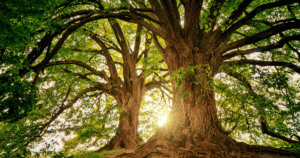
Trees
Joyce Kilmer
I think that I shall never see
A poem lovely as a tree.
A tree whose hungry mouth is prest
Against the earth’s sweet flowing breast;
A tree that looks at God all day,
And lifts her leafy arms to pray;
A tree that may in summer wear
A nest of robins in her hair;
Upon whose bosom snow has lain;
Who intimately lives with rain.
Poems are made by fools like me,
But only God can make a tree.
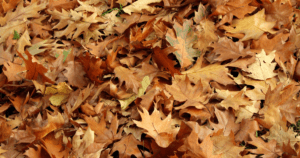
Dead Leaves
Georgia Douglas Johnson
The breaking dead leaves ’neath my feet
A plaintive melody repeat,
Recalling shattered hopes that lie
As relics of a bygone sky.
Again I thread the mazy past,
Back where the mounds are scattered fast—
Oh! foolish tears, why do you start,
To break of dead leaves in the heart?
Poem on Nature by William Wordsworth
I wandered lonely as a Cloud
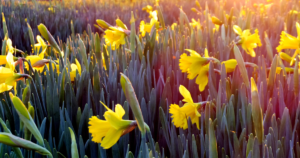
I wandered lonely as a Cloud
That floats on high o’er Vales and Hills,
When all at once I saw a crowd,
A host of golden Daffodils;
Beside the Lake, beneath the trees,
Fluttering and dancing in the breeze.
Continuous as the stars that shine
And twinkle on the Milky Way,
They stretched in never-ending line
Along the margin of a bay:
Ten thousand saw I at a glance,
Tossing their heads in sprightly dance.
The waves beside them danced, but they
Out-did the sparkling waves in glee:—
A Poet could not but be gay
In such a jocund company:
I gazed—and gazed—but little thought
What wealth the shew to me had brought:
For oft when on my couch I lie
In vacant or in pensive mood,
They flash upon that inward eye
Which is the bliss of solitude,
And then my heart with pleasure fills,
And dances with the Daffodils.
Poem on Nature by Emily Dickinson
A Bird came down the Walk
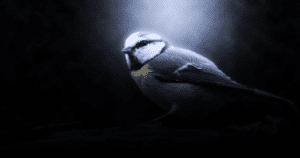
A Bird came down the Walk—
He did not know I saw—
He bit an Angleworm in halves
And ate the fellow, raw,
And then he drank a Dew
From a convenient Grass—
And then hopped sidewise to the Wall
To let a Beetle pass—
He glanced with rapid eyes
That hurried all around—
They looked like frightened Beads, I thought—
He stirred his Velvet Head
Like one in danger, Cautious,
I offered him a Crumb
And he unrolled his feathers
And rowed him softer home—
Than Oars divide the Ocean,
Too silver for a seam—
Or Butterflies, off Banks of Noon
Leap, plashless as they swim.
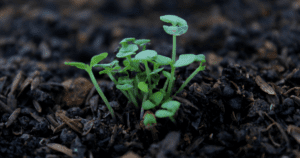
There is Another Sky
There is another sky,
Ever serene and fair,
And there is another sunshine,
Though it be darkness there;
Never mind faded forests, Austin,
Never mind silent fields –
Here is a little forest,
Whose leaf is ever green;
Here is a brighter garden,
Where not a frost has been;
In its unfading flowers
I hear the bright bee hum:
Prithee, my brother,
Into my garden come!
Poem on Nature by Robert Frost
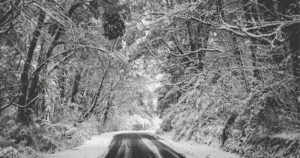
Stopping by Woods on a Snowy Evening
Whose woods these are I think I know.
His house is in the village though;
He will not see me stopping here
To watch his woods fill up with snow.
My little horse must think it queer
To stop without a farmhouse near
Between the woods and frozen lake
The darkest evening of the year.
He gives his harness bells a shake
To ask if there is some mistake.
The only other sound’s the sweep
Of easy wind and downy flake.
The woods are lovely, dark and deep.
But I have promises to keep,
And miles to go before I sleep,
And miles to go before I sleep.
Poem on Nature by John Keats
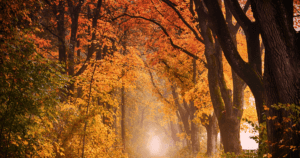
To Autumn
Season of mists and mellow fruitfulness,
Close bosom-friend of the maturing sun;
Conspiring with him how to load and bless
With fruit the vines that round the thatch-eves run;
To bend with apples the moss’d cottage-trees,
And fill all fruit with ripeness to the core;
To swell the gourd, and plump the hazel shells
With a sweet kernel; to set budding more,
And still more, later flowers for the bees,
Until they think warm days will never cease,
For summer has o’er-brimm’d their clammy cells.
Who hath not seen thee oft amid thy store?
Sometimes whoever seeks abroad may find
Thee sitting careless on a granary floor,
Thy hair soft-lifted by the winnowing wind;
Or on a half-reap’d furrow sound asleep,
Drowsed with the fume of poppies, while thy hook
Spares the next swath and all its twined flowers:
And sometimes like a gleaner thou dost keep
Steady thy laden head across a brook;
Or by a cider-press, with patient look,
Thou watchest the last oozings, hours by hours.
Where are the songs of Spring? Ay, where are they?
Think not of them, thou hast thy music too,–
While barred clouds bloom the soft-dying day,
And touch the stubble-plains with rosy hue;
Then in a wailful choir the small gnats mourn
Among the river sallows, borne aloft
Or sinking as the light wind lives or dies;
And full-grown lambs loud bleat from hilly bourn;
Hedge-crickets sing; and now with treble soft
The redbreast whistles from a garden-croft,
And gathering swallows twitter in the skies.
How to Write a Poem on Nature
Writing a poem about nature necessitates both peace and poetic ability. However, if you are a beginner, you can still write an amazing poem about nature by following these steps.
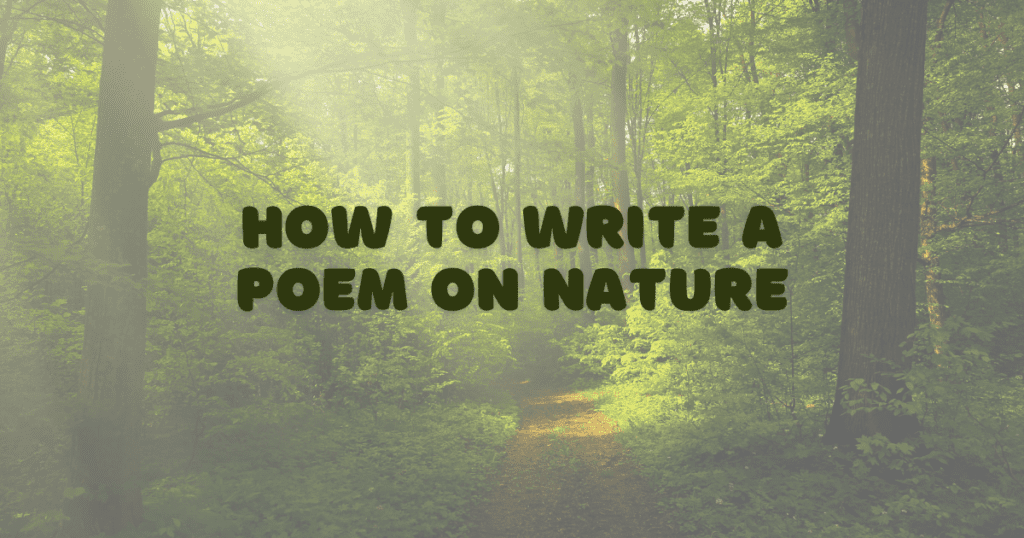
Get Inspired
To write a poem on nature, first of all, you need to read certain poetic works. You may carefully examine those works in the above-mentioned poems of Robert Frost or Wordsworth. This will give you inspiration and ideas for the poem you are aspiring to write. Read at least 5 poems on nature before writing one.
Observe Around You
After reading the poetic works, you need to walk out of your room. The art of poetry is learned in the open, around nature itself. Observe your surroundings such as dew drops in the morning, the white cloud formation in the blue sky, a bud, trees, rain, the chirping of birds, snowfall, sunrays, etc.
When you observe nature in your surroundings, you will get peace and a feeling of bliss in your heart. If these things make you smile, you are one step closer to writing your poem on nature.
Spend time with Nature
Observing nature will help you in your imagination. But to help that imagery, you need to spend time with nature. Find a noiseless place where nature (trees, plants, beauty, and animals) is in abundance. Imagine how these little things are giving you joy and compare these emotions to any imagery.
Pour Out your Emotions on Paper
Now, you have your emotions and imagery. Write down your feelings about the poem. At that start, you will find it a little difficult to write one as a beginner. But let me help you in writing it. Imagine you are passing by a garden where thousands of flowers are blossoming. Now we can start it by,
I passed by a garden, full of flowers, (this can be your first line)
Now, write what you observed there. It can be a special bud or butterflies. Let’s continue.
There were beautiful butterflies, but my eyes fell on a bud.
Now, compare the beauty of bud to different imagery.
That bud wasn’t small, but it was rupturing at the top. (Compare this with something else from nature)
As something was inside, like the magma inside a volcano.
Now, write the end, what do you observe as an ending?
And I wanted it to erupt, to scatter the fragrance around.
Your short poem will look like this,
I passed by a garden,
full of flowers,
There were beautiful butterflies,
but my eyes fell on a bud.
That bud wasn’t small,
but it was rupturing at the top.
And I wanted it to erupt,
to scatter the fragrance around.
Use Rhymes to Make it Better
Rhyming helps in making the poem better and easy to read. To make a poem rhyme, you need to rhyme the last word in one line to the last word in the second line. For example, the rhyme of small is whole, and the rhyme of top is the crop. You may choose any rhyming word but the main task is to connect both rhymes. Check Learn & Fun to know how rhyming work.
Let’s see how our poem looks with a rhyme.
I passed where a garden lies,
full of flowers & wood,
There were beautiful butterflies,
but my eyes fell on a bud.
That bud wasn’t small,
but it was rupturing at the top.
As wanted to erupt as a whole,
to scatter the fragrance on the crop.
Conclusion
Here, we read the best poems on nature by famous English poets. The guide on how to write a nature poem will help you in writing your first nature poem as a beginner. Poems on nature provide relief as we get acquainted with the beauty around us. It brings peace and healing to our hearts.
Thanks for reading!

